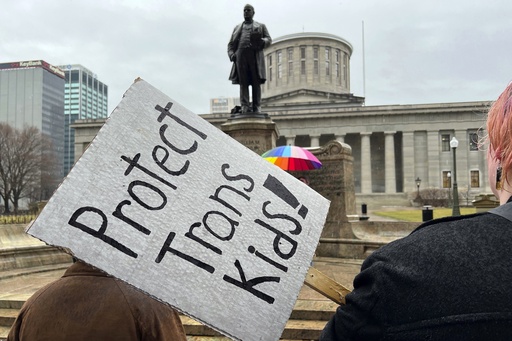A judge in Ohio has ruled that a law limiting gender-affirming health care for minors under 18 can go into effect. The law, enacted by state lawmakers in January, prohibits transgender surgeries and hormone therapies for minors unless they are deemed necessary to continue by a doctor. It also restricts the type of mental health services that minors can receive. The law also includes a ban on transgender athletes participating in girls’ and women’s sports.
The decision was met with criticism from groups like the American Civil Liberties Union of Ohio, who stated they would file an immediate appeal. They argued that the law denies transgender youth essential health care and discriminates against their access to it. The lawsuit also contended that the law violates Ohio’s single-subject rule for bills.
Despite pushback, Franklin County Judge Michael Holbrook upheld the law, stating that it balances parental rights with the state’s interest in regulating medical treatments. Ohio Governor Mike DeWine initially vetoed the law in 2023, citing concerns about the impact on transgender youth’s health and the risks associated with denying proper treatment for gender dysphoria.
DeWine had planned to take administrative action to restrict transgender surgeries until a person turns 18 and to improve the regulation and monitoring of gender-affirming treatments for both minors and adults. However, this plan was reconsidered after facing backlash from transgender adults expressing worries about potential adverse effects state regulations could have on their lives and well-being.
Following DeWine’s veto, state lawmakers overrode it, making Ohio the 23rd state to ban gender-affirming health care for transgender youth at the time. The Attorney General’s office defended the law, emphasizing its aim to protect children from irreversible medical decisions. The ongoing legal battle showcases the ongoing debate over transgender rights and health care access in Ohio.
